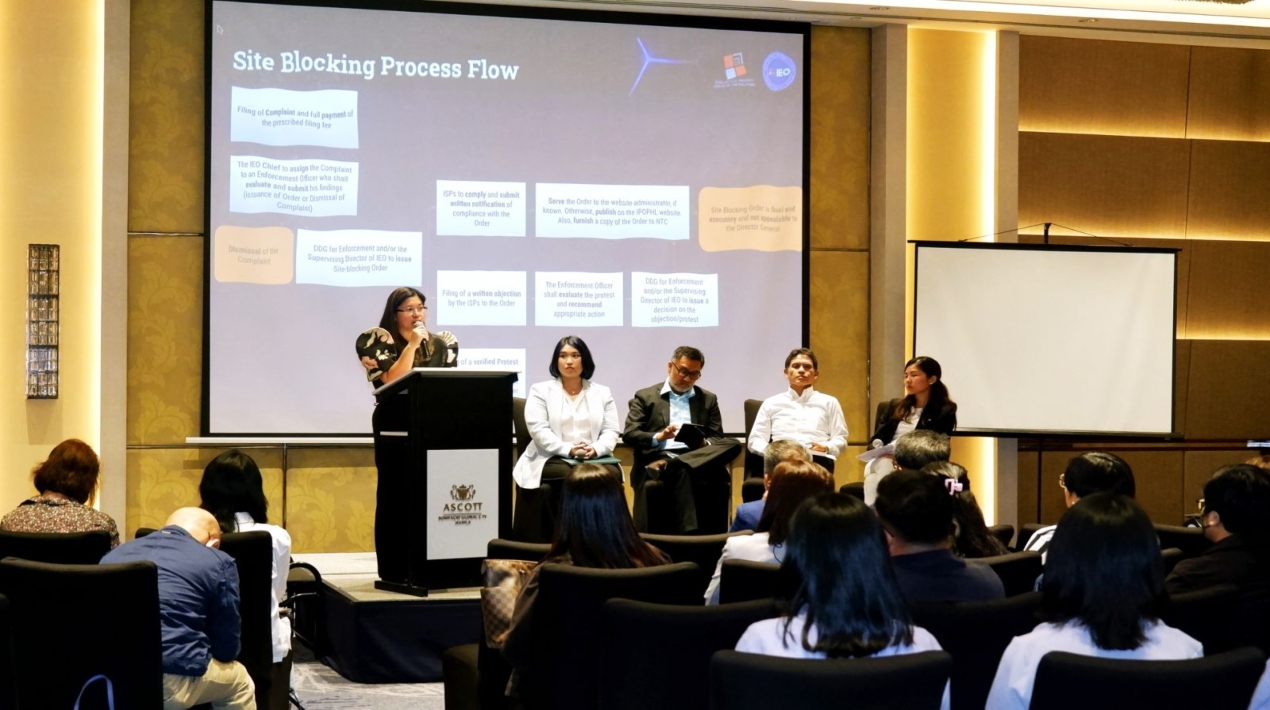
The Intellectual Property Office of the Philippines (IPOPHL) disclosed that it recently completed the draft rules on voluntary site-blocking in collaboration with local internet service providers (ISPs) – the most recent development in its push for a site-blocking regime that is believed to save the Philippine creative economy from massive revenue and employment losses caused by piracy.
The efficacy of site-blocking in reducing piracy consumption in Indonesia and Thailand has attracted national attention in recent months. Hence, within a year, IPOPHL hopes to implement a site-blocking mechanism.
This will give the IP Enforcement Office (IEO) the authority to issue orders requiring ISPs to disable or block access to rogue websites. Soon, they will issue rules and regulations regarding site-blocking procedures, which will outline a streamlined procedure for ISPs to block pirated websites.
IPOPHL also commended ISPs for coordinating closely with IPOPHL to initiate site blockage, thereby establishing a framework for the practical implementation of a mechanism that adequately provides due process.
These regulations will apply to websites whose primary purpose or effect is to infringe or facilitate online copyright infringement. It will also target websites containing pirated content created, produced, or replicated without the right holder’s consent or a person duly authorised by the right holder.
Websites that are being used to sell fake goods are covered by an e-commerce agreement between brand owners and online platforms that were made in March 2021.
House Bill 7028 also supports IPOPHL’s efforts to establish and expedite site blocking and takedown procedures by empowering IPOPHL to issue site-blocking orders directly to ISPs. The Trade and Industry Committee of the House of Representatives has approved the bill.
IPOPHL’s attempts to build an environment conducive to a credible and robust intellectual property (IP) enforcement system include site blocking. This is to reassure creative economy rights holders that if they have concerns with their IP rights, they can rely on an IP enforcement system that is swift, responsive, efficient, and effective.
But without the IP rights holders who must start the legal procedure to pursue their infringers, IP enforcement and protection activities will fail. The prosecution of intellectual property cases is not automatic. As a result, they require copyright holders to be more aware of their rights and the methods for exercising those rights and seeking remedies, all of which IPOPHL facilitates through workshops and industry-specific collaborations.
Additionally, the IPOPHL has stated that in order to maintain the momentum in IP creation, they will focus on three key strategies: improving the IT infrastructure to ensure the consistent availability of online services and smooth transactions; bringing IP to more areas to ensure regional inclusive growth and participating in the global IP community to learn new techniques that will help IPOPHL and IP rights holders and users best respond to corporate digitalisation.
The agency also acknowledged the challenges that firms may experience because of inflationary pressures and uncertainty caused by the global slowdown and geopolitical concerns but reminded them of the long-term benefits of intellectual property.
According to IPOPHL, despite a cautiously positive prognosis for this year, some organisations may cut down on spending, but hopefully not at the expense of failing to adequately secure their high-value IP assets.
Those who place intellectual property at the centre of their strategy may have a better chance of survival, as valuable IP assets may propel organisations to new heights of innovation, creativity, and brand identification – all of which are crucial determining factors in a company’s long-term growth and competitiveness.
















